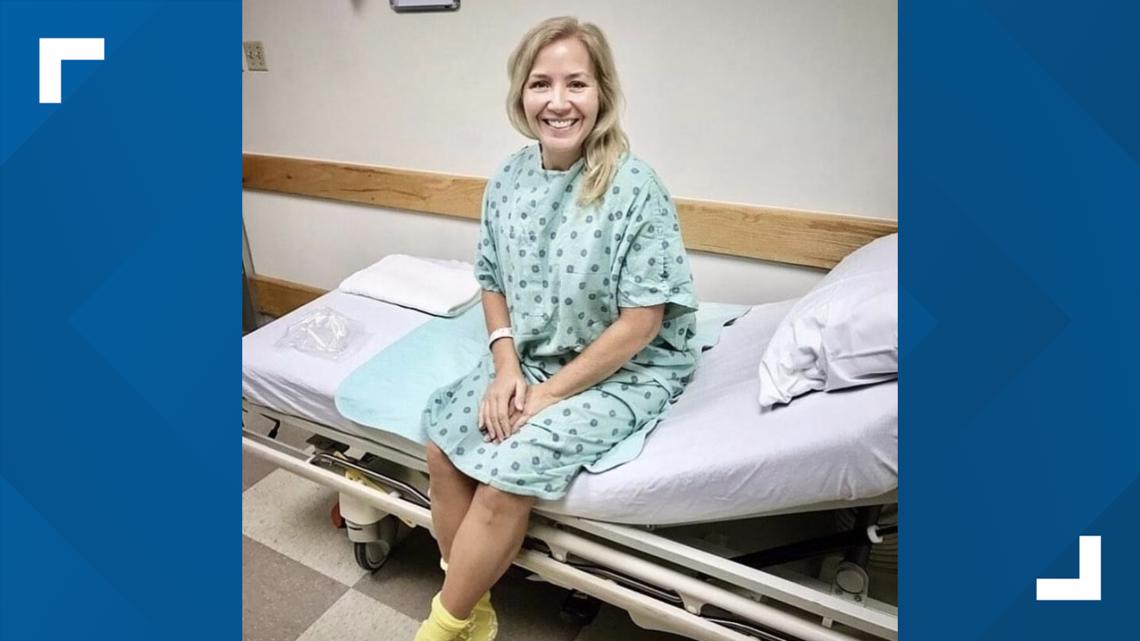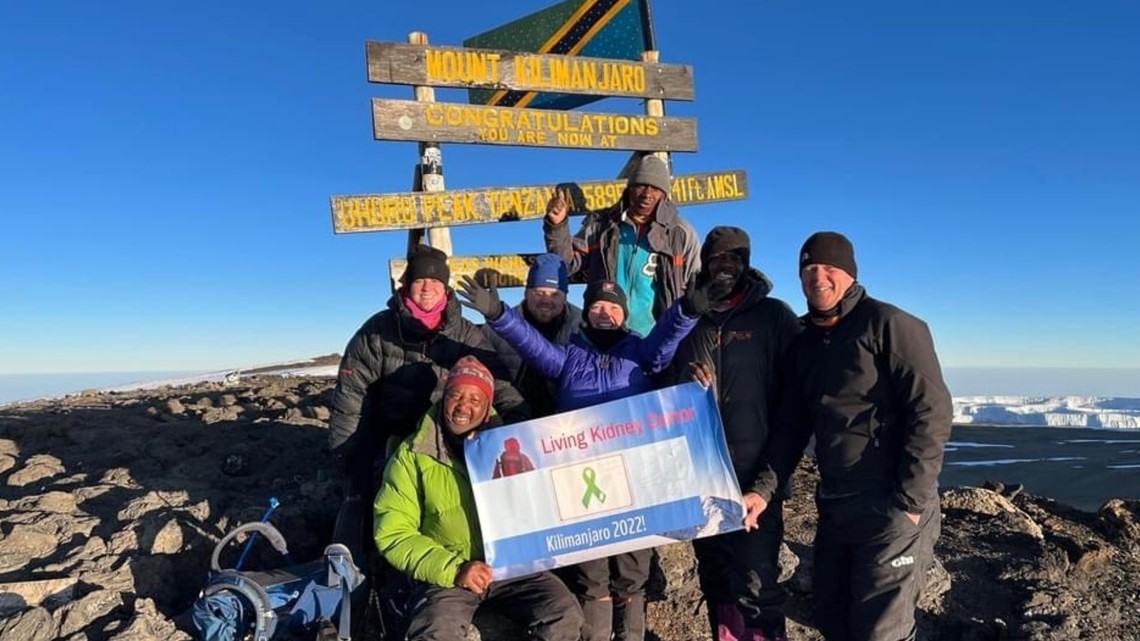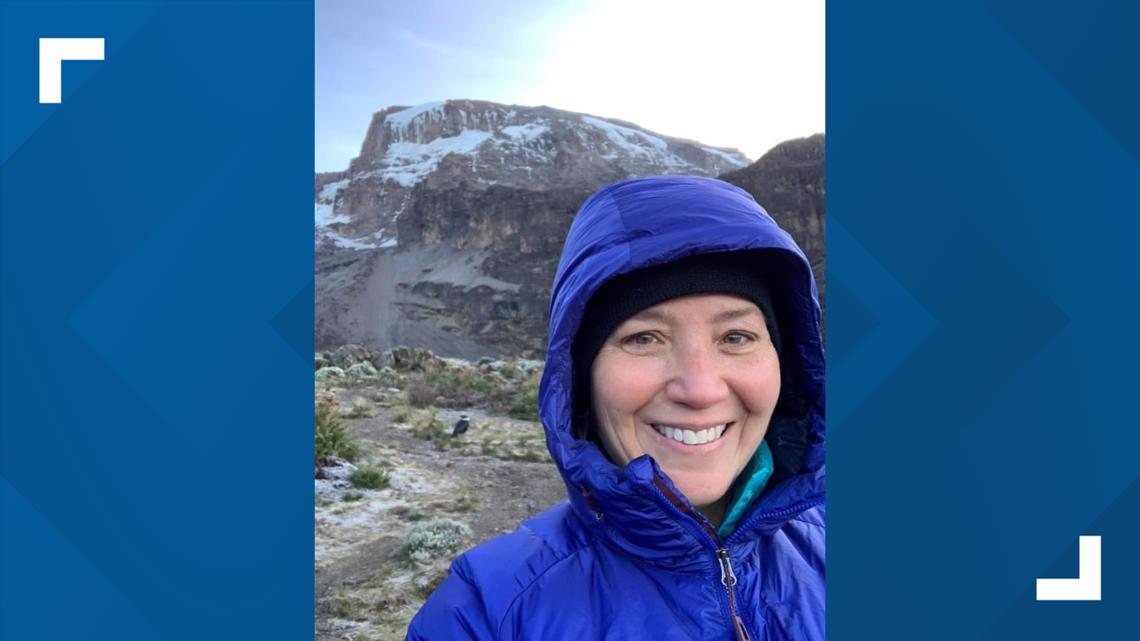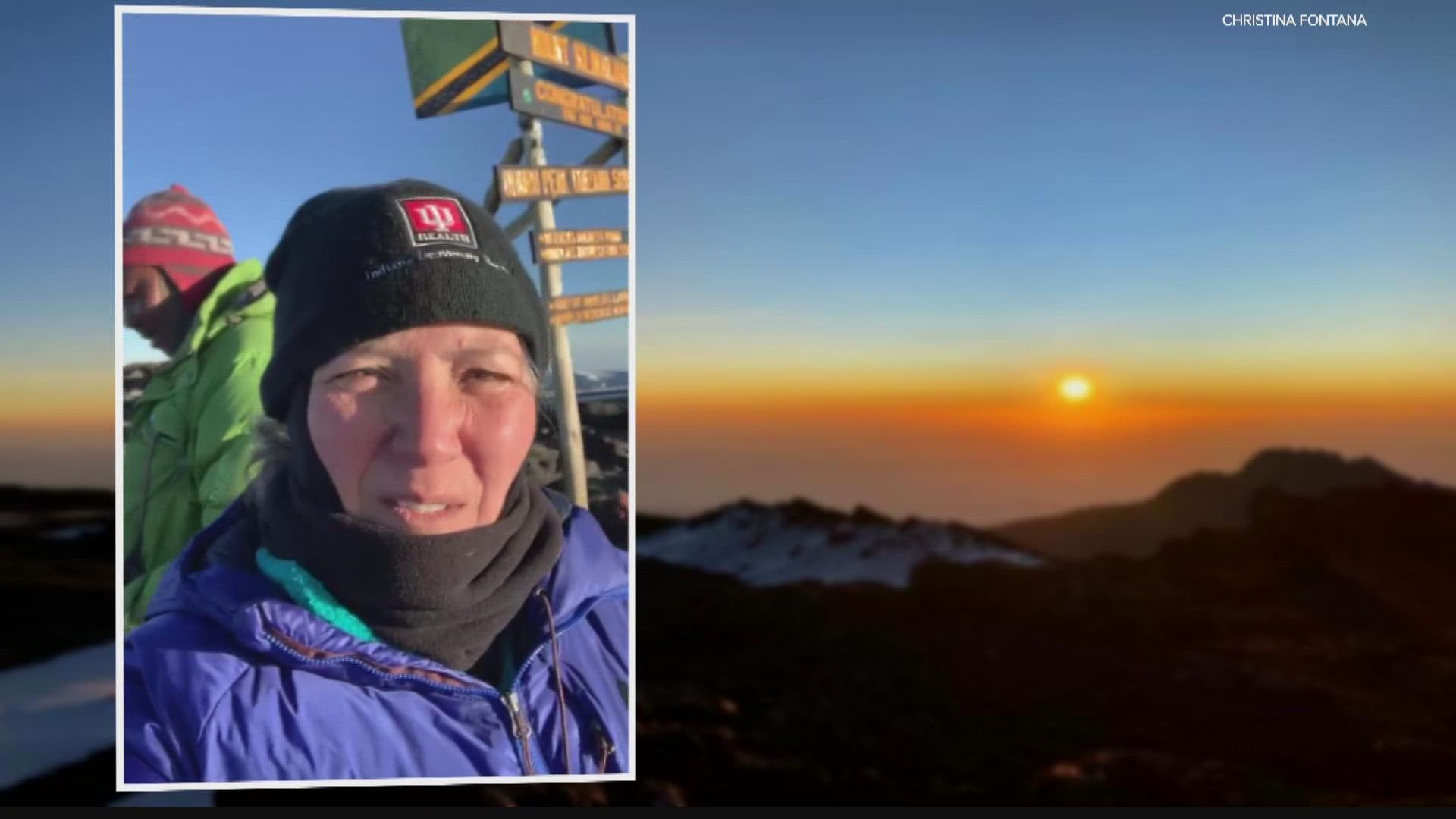INDIANAPOLIS — April is National Donate Life Month, and one Indiana woman isn't letting being a living donor stop her from reaching new heights.
“When you donate a kidney, that does not limit what you can do,” said Cristina Fontana, a transplant living organ coordinator at IU Health University Hospital.
In 2018, Fontana gave one of her kidneys to a complete stranger.
“I knew it was something that was planted in my heart,” she said. “I decided to look into it. I didn’t even know that you could donate to a stranger. I didn’t know if I was going to be a candidate. I didn’t know what was involved in the process.”
About six months after her surgery, she was hired on the transplant team.
“I think it is very helpful, because I have been in their feet. I have been where they are at. I don’t tell all my patients at the beginning, because we honor the fact that they have the right to opt out of this process at any point,” she said. “But when I share it, it creates a very special bond.”
Fontana said some donors worry the surgery will prevent them from doing certain activities, but after her procedure, she continued her passion for hiking and joined Kidney Donor Athletes.


About a year ago, KDA was looking for applicants to take to Mount Kilimanjaro. She applied and was chosen.
“This is something not everyone will do in their lifetime, whether they have two kidneys or one,” she said. “I knew when I went into this, what I wanted to do was bring awareness that you can live a long, healthy life with one kidney and still try to do things that are in your heart that might seem impossible for other people, but they are possible for you.”
Instead of going with the KDA, Fontana decided to go separately with some of her family members who wanted to join. The group included her husband, youngest son, daughter and her daughter’s husband. Her middle son and his girlfriend met them at the bottom on the final day.
The group went in late March and was joined by three other people. It took them six days to go up 19,341 feet in freezing temperatures and two days to come down. Only the five of them made it to the summit.
“It was a lot colder than we anticipated. With sleeping in tents for eight days, being cold, not showering, it became not such a physical achievement but more of a mental process,” Fontana said. “I would say definitely the summit night was the hardest. It took us seven hours to do three or four miles. We gained 4,000 feet of elevation and we hiked all night.”
But she knew that struggle was nothing compared to those waiting for an organ donation or going through dialysis.
About an hour from the summit, Fontana said you could see the sun start to peek out and that’s when she knew they made it.
“One of my kids said, ‘Mom look behind you,’ and we stopped for a minute, and we turned around and there was a beautiful sunrise coming up. I started crying,” she said.


At 7 a.m. on March 21, they officially made it to the top of Mt. Kilimanjaro.
“I kept my purpose at the forefront. I kept saying I feel fine. I am doing this. I feel great and I want to show the world that I am OK,” she said.
Fontana said it was an accomplishment not just for herself, but also for her parents, who both died of kidney issues.
“It was almost as if I had to go through what I went through and lose both of my parents in order for me to give so selflessly to someone else,” she said. “I wish I had another kidney or more that I could give to help someone else because, honestly, I think it has enriched my life more than theirs in so many ways.”


There are approximately 97,000 people on the national kidney transplant list and more than 3,000 are added to the list each month. Many people spend years waiting for a kidney and, unfortunately, 12 people lose their lives each day due to kidney failure.
For more information about IU Health’s organ transplant services, click here.

